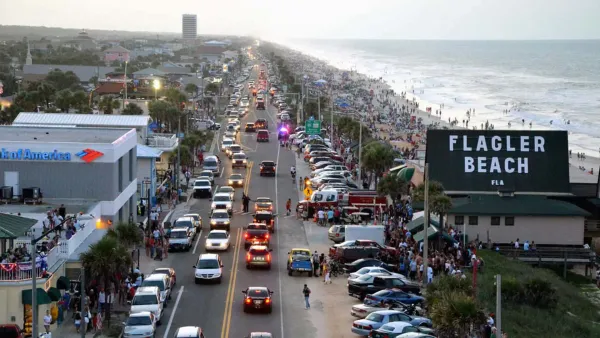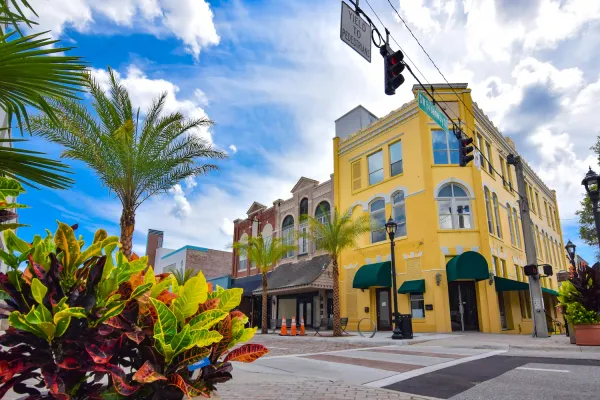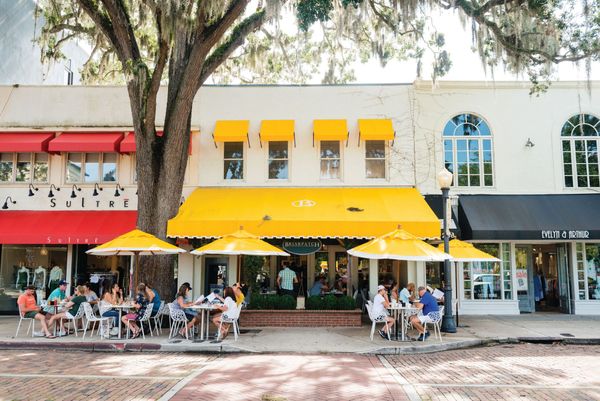Florida, known for its picturesque beaches and perennial vacation vibes, has always been a hotbed for tourists. With the rising trend of private short-term rentals (STRs) facilitated by platforms like Airbnb and VRBO, homeowners are exploring opportunities to capitalize on their properties. However, diving into the world of STRs in Florida is not without its challenges. This comprehensive guide sheds light on the intricacies involved in starting and maintaining a compliant and profitable short-term rental business in Florida.
The Boom of Short-Term Rentals in Florida
Florida's allure as a vacation hotspot is nothing new. With its continued popularity and the evolving dynamics of travel, many homeowners are turning their sights to the profitable endeavor of renting out their properties for short stays. However, short term rentals aren't as straightforward as listing a property online and watching the bookings roll in. Several compliance issues come into play.
Overview of Compliance Rules
The journey to becoming a compliant short-term rental host in Florida begins with understanding the multiple layers of regulations:
- State, County, and City: Each level of government has its rules and regulations regarding STRs. The property's location, therefore, is crucial in determining which rules apply.
- Mortgage Lenders: They categorize properties based on occupancy (Primary Residence, Second Home, Investment Property), and short-term renting can influence the loan terms.
- Property Insurance Companies: Insurers view rent-paying tenants differently than non-paying guests. Without the right coverage, claims can get rejected.
- Condominium or Homeowners Association: These entities have their guidelines, and short-term rentals often fall under strict scrutiny.
Defining Short-Term Rentals in Florida
Florida Statutes (Chapter 509) categorize a property as an STR if it's rented for 30 days or less more than thrice a year. Simultaneously, the Department of Revenue labels an STR any rented space occupied for six months or less. These definitions align such rentals with hotels and motels, subjecting them to similar tax regulations. For in-depth information on housing accommodations rental taxes, the Florida Department of Revenue's information sheet is a valuable resource.
Taxes on Short Term Rentals & Airbnb
STR hosts must navigate a maze of tax requirements:
- State Tax: Florida mandates a 6% state sales tax on transient rentals.
- County Tax: Depending on the county, there's an additional tax, ranging from 2% to 6%.
- City Tax: Cities may also have their registration requirements and taxes. For instance, Miami Beach levies a 4% resort tax on top of state and county taxes.
Ensuring compliance with all tax requirements is crucial to avoid hefty penalties.
County and City Rules & Regulations
Many Florida locales are ramping up their oversight on STRs. Collier County, for instance, not only demands standard taxes but also requires a Short-Term Vacation Rental Registration Application. This ensures the county has a contact point for emergencies or complaints related to the rented property. Non-compliance can attract substantial fines.
Meanwhile, Orlando and Orange County have their own set of rules that are largely influenced by the local tourism industry and nearby Disney.
Mortgage, Insurance and HOA
Mortgage lenders evaluate properties based on their intended use. Misrepresenting this use to gain favorable loan terms can lead to mortgage fraud—a serious offense. It's essential for STR hosts to understand their mortgage terms and restrictions. Offering properties for transient rental often necessitates an Investment Property loan.
Navigating STR Insurance
Insurance intricacies can make or break an STR business. Regular homeowners' policies might not cover claims arising from tenant-related incidents. Additionally, condos and properties under a homeowners' association might have different insurance criteria for short-term rentals. Consulting with a Florida-licensed insurance agent can clear the murky waters of STR insurance.
The Role of Condominium and Homeowners Associations
For many, this is the make-or-break point. COAs and HOAs have their rules, often embedded in the property's governing documents. Most associations demand applications and grant approvals before allowing rentals. Violating these rules can lead to fines or restricted access to community amenities.
Homestead Status Implications
Florida provides numerous benefits to those declaring their property as a permanent residence under the Homestead status. This includes tax savings and protection against forced sales. However, frequent or prolonged renting of such a property might lead to the forfeiture of these benefits.
Conclusion
Venturing into the world of short-term rentals in Florida is enticing and if hiring a property manager, it could be a great way to generate passive income. The state's popularity among tourists ensures a steady stream of potential guests. However, navigating the labyrinth of compliance can be challenging. By understanding the nuances at the state, county, and city levels, consulting with mortgage lenders and insurance agents, and adhering to COA or HOA






